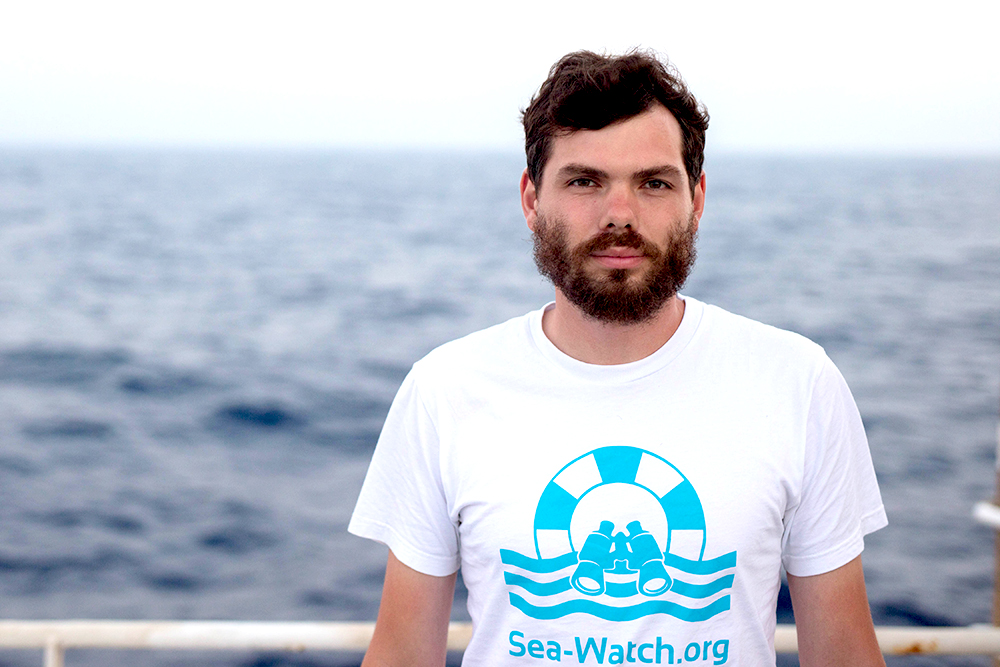Johannes works to provide a safe passage over the Mediterranean Sea
Johannes Bayer graduated from the master’s programme in Naval Architecture in 2017. He is now Chairman of the non-profit organization Sea-Watch e.V and is a freelance consultant in the maritime field.

Hi Johannes, what are you working on at the moment?
Since 2015 I have been working for the non-profit organization Sea-Watch e.V, which operates ships and aircraft in the Mediterranean Sea to help prevent people from drowning. In the current humanitarian crisis, Sea-Watch provides emergency relief capacities, demands and pushes for rescue operations by European institutions and also publicly campaigns for legal escape routes. I became a board member in 2017 and in 2018 I became Chairman of Sea-Watch e.V. Along with technical projects, my main focus is on organisational development and strategic planning.
Every day, particularly during rescue operations, can look different, from working in the office on administrative tasks to attending emergency meetings with our mission support team, to finding ways of ensuring that rescued people are brought to land quickly and safely.
In addition to my work for Sea-Watch e.V, I am a freelance consultant in the maritime field.
Why did you choose this programme at KTH?
After my bachelor’s degree in Bremen, Germany, I wanted to do my master’s degree in another European country. I checked different programmes and the programme at KTH seemed very practice orientated. Also, a good friend of mine was already studying at KTH on the same programme and told me about the courses.
Are there any insights or knowledge you acquired during your studies that have been particularly useful for you in your career?
I’m not sure how often I use my engineering skills. What I do use regularly are my project management skills and the way of strategically thinking and preparing operations and projects.
What were the best aspects of your studies at KTH?
The professors, the technical possibilities in the lab and, as I said before, the great team projects. I really liked the opportunity to build and test in the well-equipped laboratories. The fact that we could always asked our professors if we needed help was something I really appreciated.
What would you want to say to a student who was thinking of applying for this programme?
If you are interested in maritime technologies, KTH is probably one of the best places in the world to broaden your knowledge and learn how to work in teams and on real projects.
